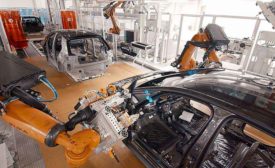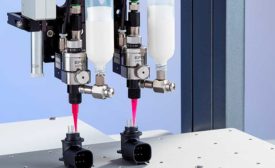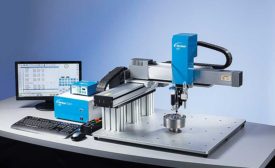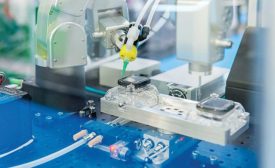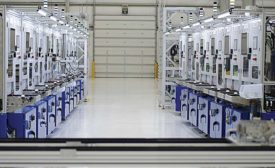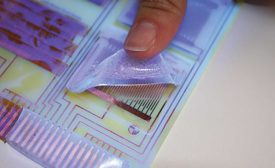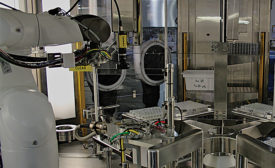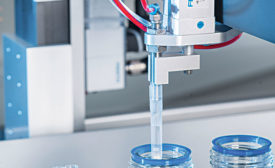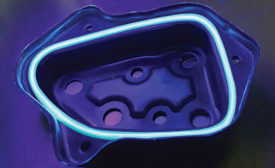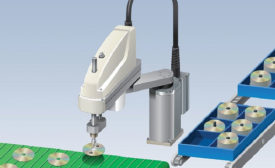Home » robotic dispensing
Articles Tagged with ''robotic dispensing''
Flexible automated equipment drives screws, dispenses adhesive and fills refrigerants.
Read More
Dispensing Challenges and Solutions
Engineers from diverse industries weigh in on challenges they face when dispensing adhesives and other materials.
February 4, 2021
The Role of Vision in Robotic Dispensing
Vision-guidance can improve the speed and precision of robotic dispensing processes
May 7, 2020
Small Robots Play a Big Role in Automation
Compact tabletop machines are becoming more popular with manufacturers
April 2, 2020
Agile Automation System Assembles Automotive Inverters
The flexible system can produce three variants of the product
November 5, 2019
Hot-Melt Adhesives for Electronics Assembly
A new generation of hot-melts is being used to assemble smartphones, tablet computers and other electronic devices.
January 5, 2018
Never miss the latest news and trends driving the manufacturing industry
Stay in the know on the latest assembly trends.
JOIN TODAY!Copyright ©2024. All Rights Reserved BNP Media.
Design, CMS, Hosting & Web Development :: ePublishing
